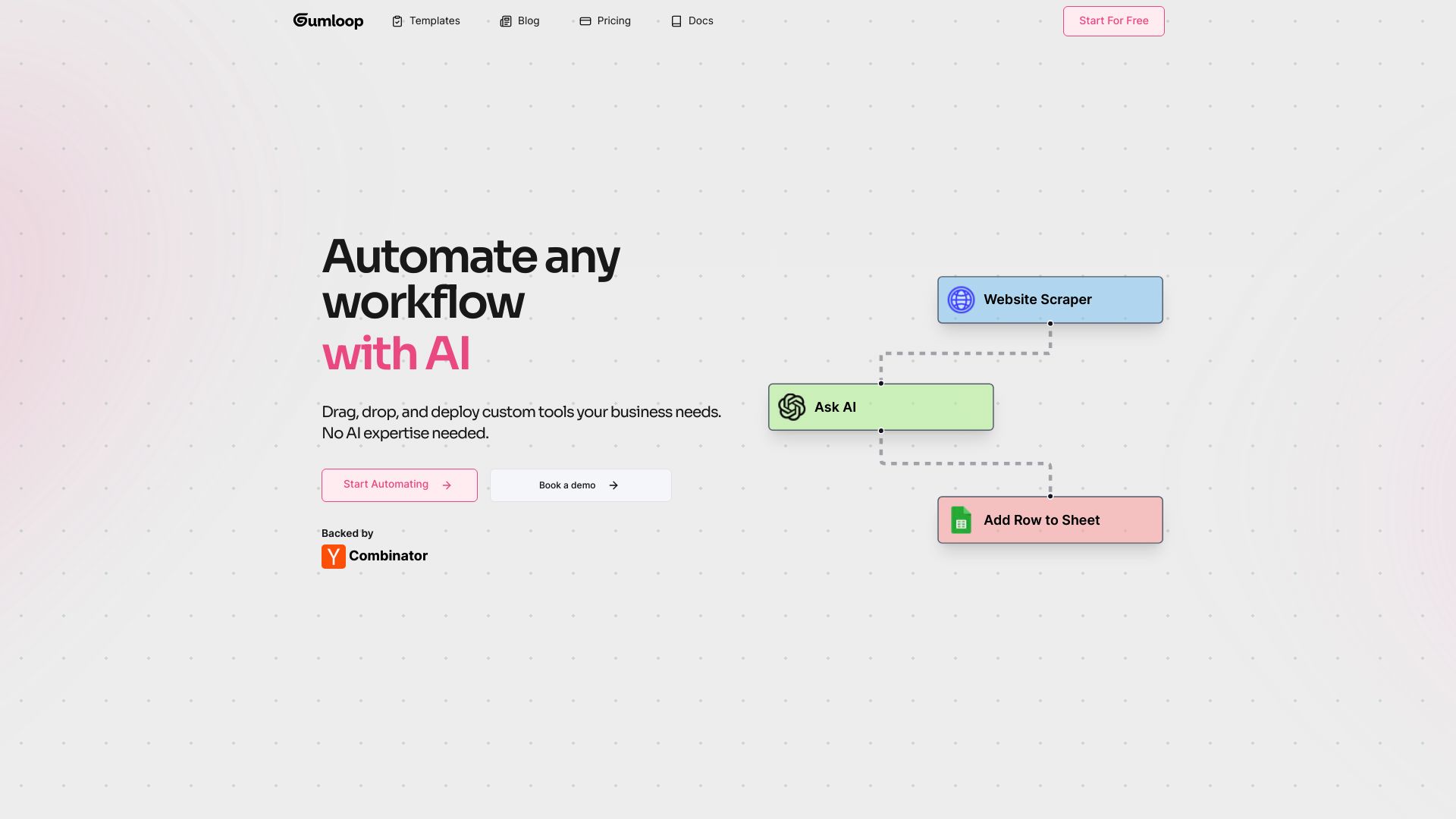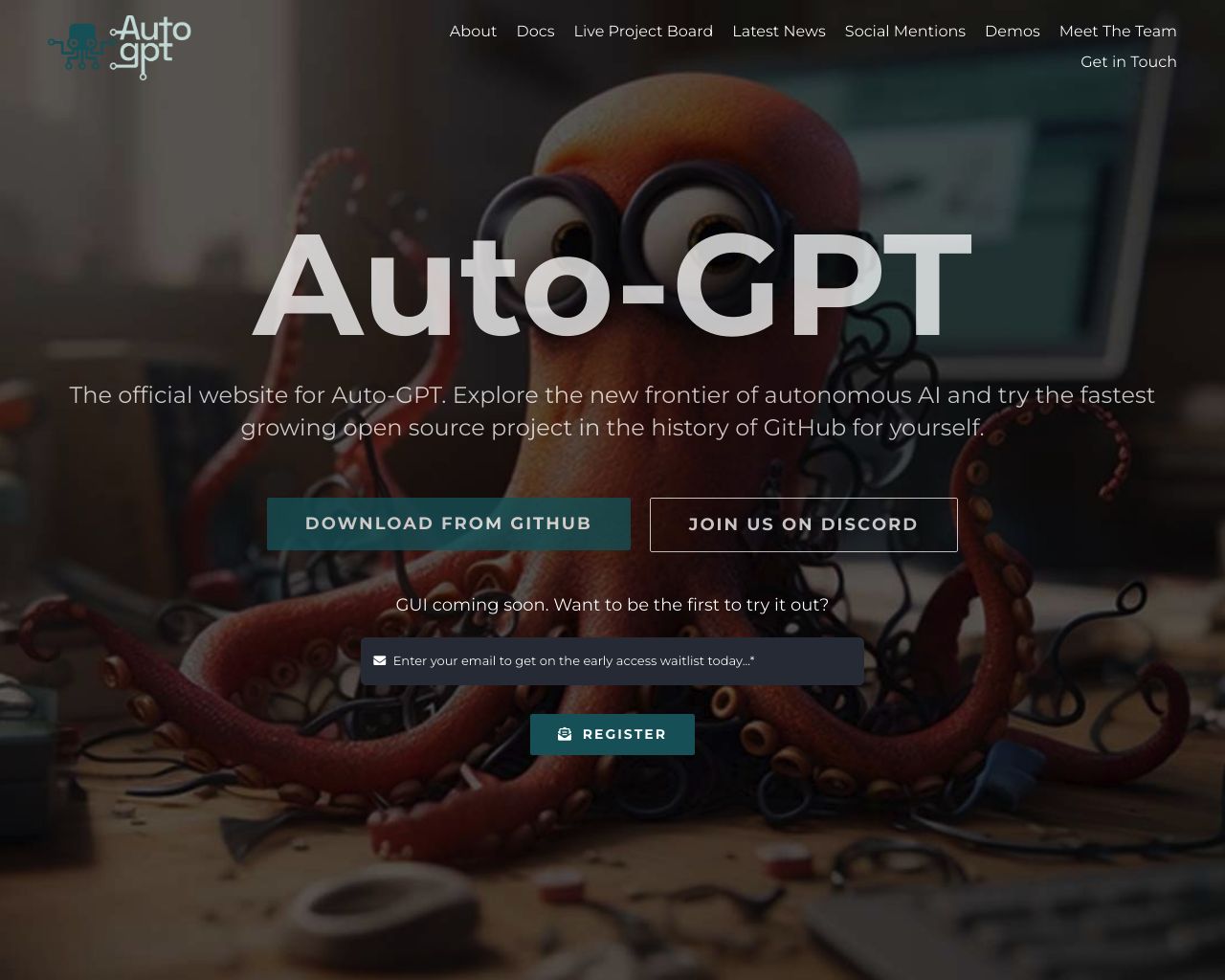AgentHub vs. AutoGPT: Comparing AI Development Platforms
AI agent development platforms revolutionize how businesses harness artificial intelligence. AgentHub vs. AutoGPT offer unique approaches to this challenge, each with distinct strengths and limitations. AgentHub’s no-code platform empowers non-technical users to create AI workflows, while AutoGPT leverages powerful GPT models for autonomous problem-solving.
This comparison explores their key features, use cases, and overall utility, helping readers determine which solution best fits their AI development needs. We’ll also introduce SmythOS, a comprehensive platform that combines intuitive design with advanced capabilities, offering a compelling alternative for businesses seeking to maximize their AI potential.
AgentHub Overview
AgentHub revolutionizes AI automation with its no-code platform, empowering businesses to create customized AI-powered workflows effortlessly. The visual builder eliminates coding barriers, allowing users to craft intelligent agents through an intuitive drag-and-drop interface. AgentHub’s pre-optimized agents tackle specific tasks without prompt selection, streamlining the automation process for various industries.
AgentHub revolutionizes AI automation with its no-code platform, empowering businesses to create customized AI-powered workflows effortlessly.


AgentHub excels in lead generation, client management, and transaction streamlining for real estate professionals. Its marketing automation tools enable targeted campaigns across multiple channels, while robust reporting and analytics features drive data-informed decisions. The platform’s collaboration tools foster teamwork, enhancing productivity for businesses of all sizes.
Key features include customizable nodes for tailoring workflows to specific business needs and seamless integration capabilities with popular software platforms. This flexibility allows AgentHub to adapt to diverse industries beyond real estate, including sales, customer relationship management, and web scraping.
Key features include customizable nodes for tailoring workflows to specific business needs and seamless integration capabilities with popular software platforms.
While AgentHub offers a comprehensive suite of tools, users should consider their specific requirements when evaluating its capabilities. The platform’s strength lies in its accessibility and pre-built templates, but advanced users might find limitations in deep customization options. AgentHub’s vision of democratizing AI automation positions it as a valuable tool for businesses seeking to harness AI power without extensive technical expertise.
AutoGPT Overview
AutoGPT empowers developers to create and manage autonomous AI agents. Built on OpenAI’s GPT-4 or GPT-3.5 models, AutoGPT enables AI systems to break down complex tasks into manageable sub-tasks, operating with minimal human intervention.


AutoGPT excels in multimodal capabilities, processing text and images to tackle diverse scenarios. The platform’s autonomous functionality shines in applications requiring independent problem-solving. Detailed audit logs enhance transparency, aiding in troubleshooting and analysis.
AutoGPT enables AI systems to break down complex tasks into manageable sub-tasks, operating with minimal human intervention.
The system facilitates API deployment, streamlining integration with external tools. AutoGPT’s open-source foundation, utilizing components like Docker, demonstrates a commitment to accessibility and flexibility. This approach caters to environments demanding advanced AI capabilities in language processing and image handling.
While AutoGPT offers powerful features, users should consider potential challenges. Integration complexity, especially with legacy systems, may require specialized knowledge. Scalability concerns could arise as data processing needs increase. Additionally, the platform’s customization options might not fully meet highly specialized requirements without significant development effort.
Feature Comparison
AgentHub and AutoGPT offer distinct approaches to AI agent development. AgentHub provides a user-friendly no-code platform with pre-optimized agents and customizable nodes, catering to businesses seeking quick AI implementation without extensive technical expertise. AutoGPT, built on OpenAI’s GPT models, excels in creating autonomous agents capable of breaking down complex tasks independently.
While both platforms support hosted agents and multiple environments, AutoGPT’s core strength lies in its advanced problem-solving capabilities and multimodal processing of text and images. AgentHub focuses more on accessibility and integration with business tools, offering features like marketing automation and client management specifically tailored for industries like real estate.
In terms of security, both platforms provide data encryption and API authentication. However, AgentHub’s documentation doesn’t mention specific features for constrained alignment or IP control, areas where AutoGPT may have an edge for users requiring more granular security measures. We prioritize robust security features, offering comprehensive options for data protection, authentication, and access control to ensure your AI implementations remain secure and compliant.
Feature Comparison Table
| AgentHub | AutoGPT | SmythOS | |
|---|---|---|---|
| CORE FEATURES | |||
| Hosted Agents (Dev, Production) | ✅ | ❌ | ✅ |
| Visual Builder | ✅ | ❌ | ✅ |
| No-Code Options | ✅ | ❌ | ✅ |
| Memory & Context | ✅ | ❌ | ✅ |
| Explainability & Transparency | ✅ | ❌ | ✅ |
| Debug Tools | ✅ | ❌ | ✅ |
| Multimodal | ❌ | ❌ | ✅ |
| Work as Team | ✅ | ❌ | ✅ |
| Agent Work Scheduler | ✅ | ❌ | ✅ |
| SECURITY | |||
| Constrained Alignment | ❌ | ❌ | ✅ |
| Data Encryption | ❌ | ❌ | ✅ |
| OAuth | ❌ | ❌ | ✅ |
| IP Control | ❌ | ❌ | ✅ |
| COMPONENTS | |||
| Huggingface AIs | ❌ | ❌ | ✅ |
| Zapier APIs | ❌ | ❌ | ✅ |
| All other APIs, RPA | ✅ | ❌ | ✅ |
| Classifiers | ❌ | ❌ | ✅ |
| Logic | ✅ | ❌ | ✅ |
| Data Lakes | ❌ | ❌ | ✅ |
| DEPLOYMENT OPTIONS (EMBODIMENTS) | |||
| Deploy as Webhook | ✅ | ❌ | ✅ |
| Staging Domains | ❌ | ❌ | ✅ |
| Production Domains | ❌ | ✅ | ✅ |
| API Authentication (OAuth + Key) | ❌ | ❌ | ✅ |
| Deploy as Site Chat | ❌ | ❌ | ✅ |
| Deploy as Scheduled Agent | ✅ | ❌ | ✅ |
| Deploy as GPT | ❌ | ✅ | ✅ |
| Scalability | ✅ | ❌ | ✅ |
| DATA LAKE SUPPORT | |||
| Hosted Vector Database | ❌ | ❌ | ✅ |
| Sitemap Crawler | ❌ | ❌ | ✅ |
| YouTube Transcript Crawler | ❌ | ❌ | ✅ |
| URL Crawler | ✅ | ❌ | ✅ |
| PDF Support | ❌ | ❌ | ✅ |
| Word File Support | ❌ | ❌ | ✅ |
| TXT File Support | ❌ | ❌ | ✅ |
Best Alternative to AgentHub and AutoGPT
SmythOS stands out as the superior alternative to AgentHub and AutoGPT for AI agent development and deployment. Our platform combines the best of both worlds — the accessibility of AgentHub’s no-code approach and the advanced capabilities of AutoGPT’s GPT-powered agents.
We offer an intuitive drag-and-drop interface that empowers users to create sophisticated AI workflows without extensive coding knowledge. Unlike AgentHub’s limited scope, SmythOS provides a comprehensive ecosystem supporting various AI models, APIs, and data sources. This versatility allows for the development of agents suited for any use case, from simple chatbots to complex autonomous systems.
SmythOS provides a comprehensive ecosystem supporting various AI models, APIs, and data sources… allowing for the development of agents suited for any use case, from simple chatbots to complex autonomous systems.
While AutoGPT excels in problem-solving with GPT models, SmythOS goes further by offering seamless integration with multiple AI providers, including OpenAI, Anthropic, and Hugging Face. This flexibility ensures you’re not locked into a single AI ecosystem. Our platform also supports multimodal capabilities, enabling agents to process and generate text, images, and other data types — a feature lacking in both AgentHub and AutoGPT.
Security and scalability set SmythOS apart. We provide robust data encryption, OAuth integration, and IP control features, addressing the security gaps in AgentHub and AutoGPT. Our platform also offers unparalleled scalability, allowing you to deploy agents across various environments, from development servers to production systems, and even as ChatGPT plugins or Alexa skills.
SmythOS… allows you to deploy agents across various environments, from development servers to production systems, and even as ChatGPT plugins or Alexa skills.
By choosing SmythOS, you gain access to a feature-rich platform that combines ease of use with advanced AI capabilities, robust security, and unlimited scalability. Whether you’re a beginner looking to create your first AI agent or an enterprise seeking to revolutionize your workflows, SmythOS provides the tools and flexibility to bring your AI visions to life.
Conclusion
AgentHub and AutoGPT offer unique approaches to AI agent development, each with distinct strengths. AgentHub’s no-code platform and pre-optimized agents cater to businesses seeking quick AI implementation without extensive technical expertise. AutoGPT, leveraging OpenAI’s GPT models, excels in creating autonomous agents for complex, independent problem-solving.
While both platforms have their merits, SmythOS stands out as the superior choice for businesses and developers looking to harness the full potential of AI. Our platform combines the best of both worlds, offering an intuitive drag-and-drop interface for easy agent creation and the power to tackle complex, multimodal tasks. With over 300,000 integrations, SmythOS provides unparalleled flexibility and scalability for businesses of all sizes.
SmythOS’s ’Create Once, Deploy Anywhere’ approach sets it apart, allowing users to seamlessly deploy AI agents across various platforms and services. This versatility, combined with our robust security features and extensive documentation, makes SmythOS the ideal solution for those seeking to revolutionize their workflows and drive innovation. Explore our diverse range of AI-powered agent templates to jumpstart your AI journey, or create a free SmythOS account to experience the future of AI automation firsthand.
Last updated:
Disclaimer: The information presented in this article is for general informational purposes only and is provided as is. While we strive to keep the content up-to-date and accurate, we make no representations or warranties of any kind, express or implied, about the completeness, accuracy, reliability, suitability, or availability of the information contained in this article.
Any reliance you place on such information is strictly at your own risk. We reserve the right to make additions, deletions, or modifications to the contents of this article at any time without prior notice.
In no event will we be liable for any loss or damage including without limitation, indirect or consequential loss or damage, or any loss or damage whatsoever arising from loss of data, profits, or any other loss not specified herein arising out of, or in connection with, the use of this article.
Despite our best efforts, this article may contain oversights, errors, or omissions. If you notice any inaccuracies or have concerns about the content, please report them through our content feedback form. Your input helps us maintain the quality and reliability of our information.
